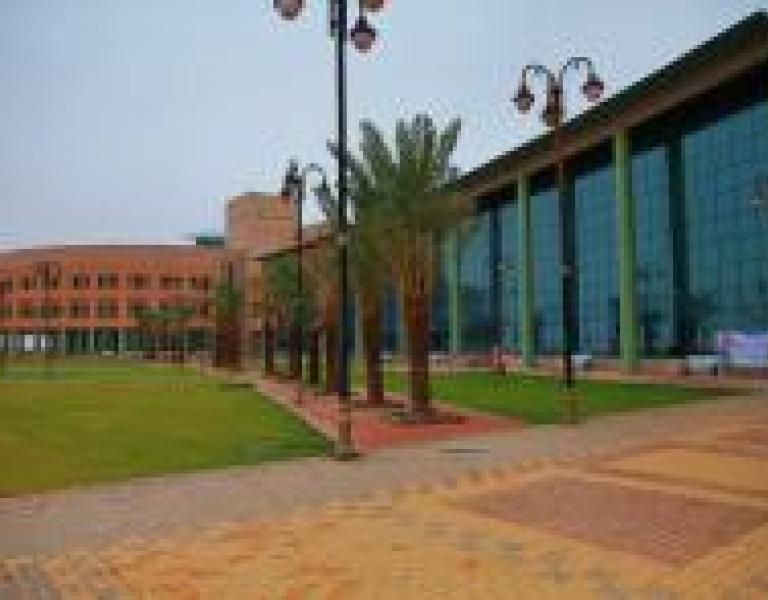The department of Medical Laboratory Technology (MLT) was established based on Royal decision No. 10093/M on 21/11/1428 H, and the decision of the Ministry of Higher Education No. 20/46/1428, meeting 46, at 2/6/1428 H, in both male and female campus, Arar city, Northern Border University.
Mission:
Prepare graduates of medical laboratory technology qualified to perform laboratory investigations, apply scientific research and provide services to the community.
Objectives:
1- Prepare skilled graduates in medical laboratory technology.
2- Provide the graduates of the medical laboratory technology with the bases to contribute to continuing education, research and scientific debates.
3-- Participate in health education and awareness programs for the community.
Medical Laboratory Technology: Program Learning Outcomes:
Knowledge and Understanding
K 1: Demonstrate comprehensive knowledge of the human body structure and function in addition to fundamental principles of clinical biochemistry, hematology, blood bank, immunology, human genetics, microbiology and histopathology, with emphasis on their roles in disease pathogenesis and laboratory-based diagnosis.
K 2: Describe the theoretical principles and applications of a wide range of biomedical laboratory techniques, advanced diagnostic tools, and instrumentation used in clinical laboratory analyses.
K3: Demonstrate knowledge of laboratory safety protocols, quality control, and standardized operating procedures to ensure good laboratory practice.
K4: Recognize the principles of scientific research methodology, data analysis, and ethical standards in research involving humans and animals.
Skills
S1: Perform a comprehensive range of laboratory procedures in biochemistry, microbiology, hematology, blood bank, immunology, molecular diagnostics and histopathology with proficiency in sample processing, test selection, technique application and data analysis and interpretation.
S2: Conduct various clinical laboratory procedures and tasks with high quality control, safe approach implementation, professional standards adherence, and taking the necessary correction actions for ensuring reliability in the diagnostic testing.
S3: Utilize information technology, statistical tools, and digital laboratory systems alongside research methodologies in processing and interpretation of laboratory data, while applying critical thinking and problem-solving skills to troubleshoot technical issues and correlate laboratory findings with clinical conditions using evidence-based approaches.
S4: Develop effective communication skills in academic/clinical settings of medical laboratory and health related information both in oral, written and digital formats to ensure clear interdisciplinary collaboration and professional reporting.
Values, Autonomy, and Responsibility
V1: Show ethical and professional responsibility in academic, clinical, and research settings by adhering to laboratory standards, patient confidentiality, and principles of integrity and social responsibility.
V2: Demonstrate self-learning, continuous professional development and leadership roles by ability to work independently or within a team with bear responsibility.
Graduates’ Attributes (GAs) for the Medical Laboratory Technology Program
(Aligned with NBU’s Graduates’ Attributes (GAs) for Bachelor Programs)
GA1: Demonstrate high standards of ethical, professional, and socially responsible behavior in medical laboratory practice by maintaining academic integrity, adhering to professional regulations, ensuring patient confidentiality, and contributing to community health initiatives.
GA2: Exhibit strong self-management, lifelong learning, and critical thinking skills by independently assessing laboratory data, engaging in continuous professional development, and making evidence-based decisions to improve laboratory operations and healthcare outcomes.
GA3: Utilize information technology, analytical, mathematical, and statistical tools to process clinical data, solve laboratory-related problems, and enhance diagnostic accuracy through evidence-based research and laboratory informatics.
GA4: Demonstrate leadership and teamwork by managing laboratory tasks, mentoring peers and junior staff, taking responsibility for laboratory operations, and promoting health and safety within the medical laboratory environment.
GA5: Recognize the role of innovation and entrepreneurship in medical laboratory technology by identifying opportunities for improvement, implementing new techniques, and contributing to the advancement of laboratory services and healthcare solutions.
GA6: Effectively communicate laboratory findings, research results, and medical information both verbally and in writing, using scientific reasoning, appropriate presentation formats, and professional language to engage with healthcare professionals, researchers, and the wider community.
